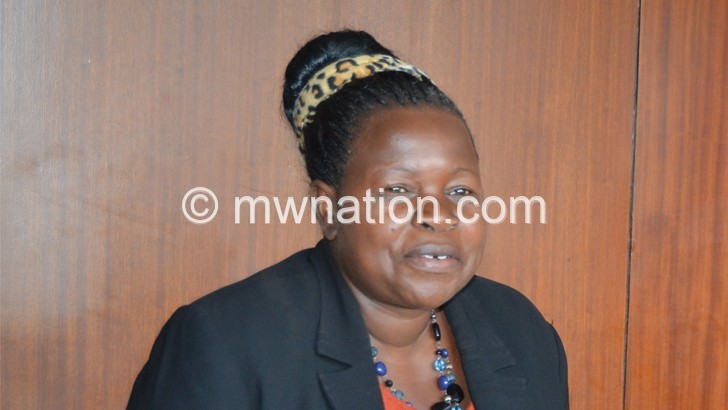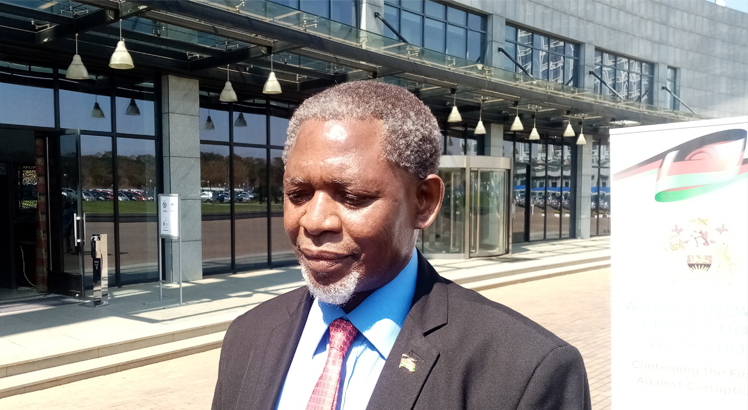Another deal
I
n September 2022, the Smallholder Farmers Fertiliser Revolving Fund of Malawi (SFFRFM) signed a contract with a foreign company dealing in oil and fish products to supply fertiliser, we have the details.
The revelation has compelled the Parliamentary Committee on Agriculture to summon the Ministry of Agriculture senior officials to explain what the committee’s chairperson Sameer Suleman described as “suspicious Namibia fertiliser deals.”
The contract, worth $150 million (about K156 billion), was signed on September 7 2022 between government acting through SFFRFM and Nendongo Commercial Group (NCG), a Namibian registered firm.
SFFRFM chief executive officer Richard Chikunkhuzeni signed on behalf of Malawi Government while NCG managing director Jonas Nendongo signed on behalf of his company.
The contract was signed in the presence of SFFRFM management accountant Joseph Butao and Collin Hangula, who is identified as head chemist for NCG.
The NCG fertiliser purchase comes as dust is yet to settle on the $124.5 million (about K128 billion) deal government through Ministry of Agriculture entered into with a Romanian company East Bridge Estates.

The exposure also comes after a United Kingdom-based butchery Barkaat Foods last year duped SFFRFM of $543 750 (about K750 million), which it made as part-payment of the Affordable Inputs Programme (AIP) deal before it was cancelled.
In March last year, the Malawi Embassy in China also stopped the signing of a fertiliser supply contract after it turned out that the purported supplier dealt in textiles, and not fertiliser.
Suleman said on Tuesday that it was surprising that government sealed a whopping $150 million fertiliser deal without Parliament’s knowledge.
“Members of Parliament approved K117 billion for the Affordable Inputs Programme. That budget came from the ministry and they said that was the country’s requirement. So, we are now surprised that government went behind us and signed another big contract of $150 million.
“I was personally shocked when I got hold of this contract. So, we are summoning them next week to explain these fertiliser deals. Just like the Romanian contract, we are equally stunned how they identified this company. $150 million is not small money, it requires proper due diligence which I doubt ever took place. I presume that is why the deal was sealed clandestinely.
“These two contracts together give us close to a million tonnes of fertiliser and yet the country’s annual requirement is around 450 000 tonnes. What do they want to do with the rest of the fertiliser? Are we really going to have all this fertiliser or it’s a way of siphoning public money? We should not be surprised if we are sued because of these contracts. Where are we going to get all these monies to pay the suppliers without Parliament approving?” wondered Suleman.
When contacted, the NCG managing director referred Weekend Nation to the company’s local representative, Miguel Elias.
He said: “Thank you for your enquiry on contract no. SFFRFM/2022/2023/08 signed on 7th September 2022. At the moment, please call Nendongo Commercial Group team representative.”
But when contacted, Elias demanded to know how we sourced the contract document, and later declined to grant us an interview.
He said in his rebuff: “You don’t [want to] disclose and you want me to disclose my private issues to you? If you don’t tell me that [source], then I will not tell you anything, you will just be wasting your time to know anything about this story.”
An online entry shows Nendongo Commercial Group, located in Auspann Plats, Windhoek and established in 2018, is a company into oil and fish industry and its products include marine oil, outboard oil, motor oil, ATF oil, hydraulic oil, gear oil, diesel engine oil, 4T&2T, brake fluids and grease.
The company claims it supplies these products in southern Africa, however, it does not mention anything to do with fertiliser or agricultural products.
The contract SFFRFM signed with NGC indicates that government is procuring 200 000 metric tonnes (MT) of fertiliser from the Namibian company at the contract price of $150 million split into two consignments of 100 000 MT of NPK (worth $85 million) and another 100 000 MT of Urea valued at $65 million.
According to the 27-page contract document, NCG is offering SFFRFM $850 per tonne for NPK while the fertiliser company is procuring Urea at $650 per tonne.
However, information sourced from the Fertiliser Association of Malawi (Fama) show that the lowest price as quoted in bids for this year’s AIP tender was $657.28 per tonne of NPK and $620.34 per tonne of Urea.
According to the contract, Nendongo was supposed to deliver all the fertilisers in Lilongwe within three months from the date of signing. However, Weekend Nation could not establish if this happened.
Our efforts to get comments on the contract from Chikunkhuzeni and Public Procurement and Disposal of Assets Authority (PPDA) did not succeed as both did not respond to our inquiries despite promising to do so.
Minister of Agriculture Sam Kawale did not pick up his phone when contacted.
However, Attorney General Thabo Chakaka Nyirenda, in a brief response, said: “I am not aware about this contract.”
But the Anti-Corruption Bureau (ACB) said in an interview yesterday it has launched investigations into the contract after it received complaints.
In a written response yesterday, ACB principal public relations officer Egrita Ndala confirmed receiving a submission from PPDA for vetting under Section 37 of the PPDA Act for engagement of the Namibian company to supply 200 000 tonnes of fertiliser.
Said Ndala: “The bureau gave the approval but, as usual, the letter of approval clearly stated that the clearance did not mean that the bureau would be barred from acting in an event that there is a complaint, or the bureau comes across an allegation about the procurement being an unprocedural and unlawful… The bureau is currently investigating the matter.”
Fama executive administrative assistant Mbawaka Phiri, in an interview yesterday, said while local suppliers’ had the capacity to supply the fertiliser, they are restricted by forex availability.
Transparency and accountability commentator Boniface Chibwana said the secrecy surrounding the fertiliser contracts was raising more questions than answers.
“This is fraud. All this points to one fact that there are fraudulent acts happening and government has to come out clearly and tell Malawians the motive behind such kind of huge procurement that do not follow procedures,” he said.





